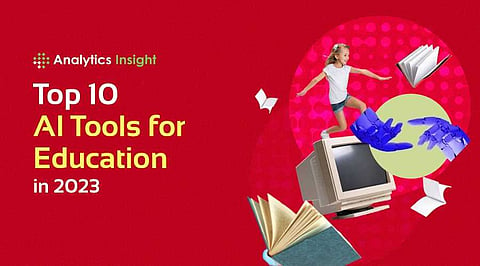

Artificial Intelligence (AI) is revolutionizing the education landscape, transforming traditional learning methods, and empowering educators and students. With AI-powered tools, educational institutions can enhance personalized learning, streamline administrative tasks, and provide students with immersive educational experiences. In this article, we will explore the top 10 AI tools for education in 2023, highlighting their features and benefits.
Adaptive learning platforms utilize AI algorithms to deliver personalized learning experiences to students. These platforms analyze individual learning patterns and adjust the content, pace, and difficulty level accordingly. Adaptive learning platforms optimize student engagement and knowledge retention by providing customized learning pathways.
Intelligent Tutoring Systems (ITS) leverage AI to provide personalized guidance to students. ITS analyzes student performance data and offers real-time feedback and targeted interventions. By adapting to each student's needs and learning style, ITS enhances understanding and mastery of complex concepts.
VR and AR technologies revolutionize education by creating immersive and interactive learning experiences. AI-powered VR/AR applications enable students to explore historical events, visit far-off places, and engage in hands-on experiments. These tools enhance student engagement, promote critical thinking, and foster a deeper understanding of subjects.
NLP technologies empower language learning by providing advanced speech recognition and translation capabilities. AI-powered language learning tools assist students in pronunciation, grammar correction, and translation. These tools offer personalized language learning experiences and facilitate practical communication skills development.
AI-driven writing assistants offer students real-time feedback on their writing, assisting with grammar, spelling, and style. These tools leverage machine learning algorithms to improve writing skills and enhance the overall quality of written assignments. Intelligent writing assistants also foster creativity and critical thinking through suggestions and prompts.
Data analytics tools utilize AI algorithms to analyze student performance data, offering insights into individual and collective progress. Educators can tailor their teaching strategies and provide targeted interventions by identifying learning gaps and patterns. Data analytics tools enable evidence-based decision-making to optimize student outcomes.
AI-powered chatbots provide round-the-clock student support, answer queries, and offer guidance. These virtual assistants assist with administrative tasks, course information, and study resources. Chatbots alleviate the burden on administrative staff and enhance student satisfaction by providing instant and accurate responses.
AI-driven gamification tools integrate game elements into the learning process, making it more engaging and interactive. These tools utilize AI algorithms to adapt the game mechanics to individual student needs, fostering motivation and knowledge retention. Gamification promotes collaboration, problem-solving, and a sense of achievement among students.
AI algorithms analyze student data and preferences to offer personalized recommendations and content curation. These tools suggest relevant learning resources, books, articles, and videos, catering to individual interests and learning goals. Personalized recommendations enhance self-directed learning and expand students' knowledge horizons.
AI-powered classroom management systems streamline administrative tasks, such as attendance tracking, grading, and scheduling. These tools optimize time management for educators, allowing them to focus more on instruction. Intelligent classroom management systems also leverage AI to detect signs of student disengagement and suggest interventions for proactive teaching.
Join our WhatsApp Channel to get the latest news, exclusives and videos on WhatsApp
_____________
Disclaimer: Analytics Insight does not provide financial advice or guidance. Also note that the cryptocurrencies mentioned/listed on the website could potentially be scams, i.e. designed to induce you to invest financial resources that may be lost forever and not be recoverable once investments are made. You are responsible for conducting your own research (DYOR) before making any investments. Read more here.
